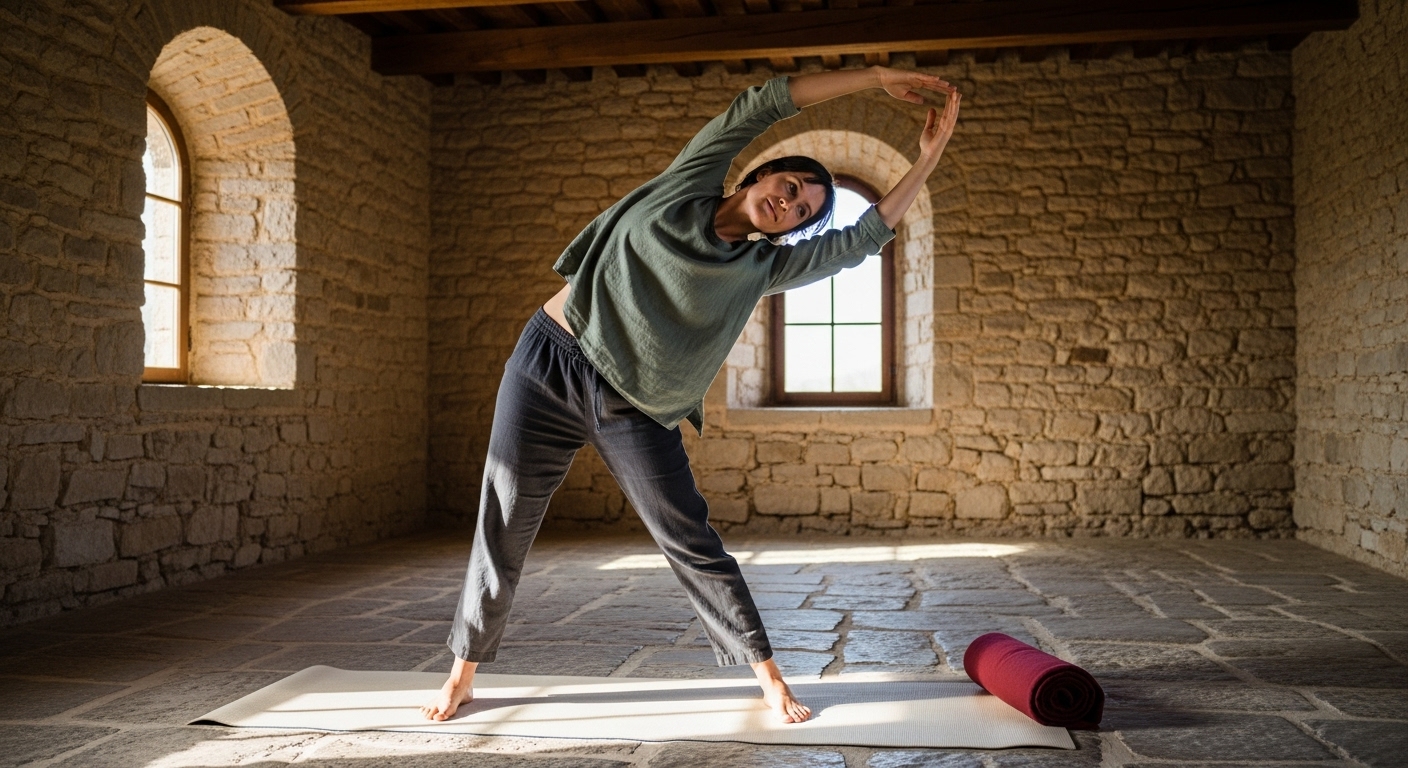Understanding emotional healing and the retreat approach
Emotional healing transcends traditional therapy by addressing the intricate connection between mind, body, and spirit as an integrated whole. Unlike weekly therapy sessions that focus primarily on cognitive processing, emotional healing retreats create immersive environments where participants can access and release emotions stored deep within the body's cellular memory.
Ancient healing systems like Ayurveda understand emotional imbalances as disruptions in the body's natural energy flow, or prana. This holistic perspective recognizes that unprocessed emotions create energetic blockages that manifest as physical tension, chronic stress, and spiritual disconnection. Modern neuroscience validates this wisdom, showing how trauma and emotions are literally stored in the nervous system and muscle tissues.
The retreat approach differs fundamentally from conventional therapy through its intensive, immersive nature. These structured programs typically span 5-7 days, creating what practitioners call a "safe container" for transformation. This extended timeframe allows participants to move beyond surface-level discussions into profound experiential healing processes.
By blending spiritual psychology with neuroscience-backed practices, emotional healing retreats facilitate deep recalibration of outdated emotional patterns. Participants engage in a powerful combination of teaching, self-inquiry, and experiential processes that literally rewire the brain for clarity, calm, and conscious connection - something impossible to achieve in traditional one-hour therapy sessions.

Types of specialized emotional healing retreats
Emotional healing retreats offer specialized programs tailored to address specific mental health challenges and life circumstances. Unlike traditional outpatient therapy sessions, these immersive experiences provide structured daily support in therapeutic environments designed for deep transformation.
Anxiety and depression retreats focus on addressing the two most prevalent mental health disorders among adults. These programs target classic anxiety symptoms including irrational fear, worry, insomnia, irritability, racing heart, sweating, and avoidance behaviors. For depression, retreats address ongoing sadness, hopelessness, loss of interest, changes in eating and sleeping patterns, fatigue, and difficulty making decisions. The intensive nature allows participants to learn new coping methods and protocols while receiving continuous professional support.
Grief and bereavement retreats provide specialized care for those experiencing prolonged grief symptoms such as emotional numbness, loneliness, despair, anger, bitterness, and social withdrawal. These programs recognize that grief processing requires expert guidance and safe therapeutic settings, offering methods to help individuals better manage loss in their daily lives.
Trauma healing retreats address post-traumatic stress disorder (PTSD) symptoms including nightmares, flashbacks, hyperarousal, sleep disturbances, angry outbursts, intense irritability, avoidance behaviors, emotional detachment, and inappropriate guilt. Programs like those offered in New Mexico blend spiritual psychology with neuroscience-backed practices, providing peaceful environments where participants can safely process traumatic experiences.
Couples and relationship healing retreats offer both private and group formats, with some centers providing specialized MDMA-assisted therapy for couples seeking deeper connection and communication improvement.
Retreat durations vary significantly, from weekend intensives to comprehensive 30-day programs. The 5-7 day format has emerged as optimal, allowing sufficient time for meaningful transformation while remaining accessible for most schedules. Centers like The Retreat Costa Rica offer structured programs with minimum 5-night stays, combining emotional counseling with therapeutic spa treatments for comprehensive healing approaches.

Holistic methodologies and Ayurvedic approaches to emotional healing
Emotional healing retreats integrate comprehensive holistic methodologies that address mind, body, and spirit as interconnected systems. Traditional Ayurvedic approaches view emotional imbalances as disruptions in the three doshas - Vata, Pitta, and Kapha - requiring personalized treatments based on individual constitution and current state of imbalance.
Ayurvedic therapies for emotional healing include specialized massages like Abhyanga and Shirodhara, which calm the nervous system and release stored emotional tension. Herbal treatments using adaptogenic plants help restore emotional equilibrium, while ancient meditation practices and pranayama breathing techniques regulate the mind and energy flow. These traditional methods work synergistically to address root causes rather than symptoms alone.
Modern holistic approaches seamlessly blend with Ayurvedic wisdom. Hypnotherapy sessions access subconscious patterns, while breathwork facilitates emotional release through somatic experiencing. Art therapy and sound healing create alternative pathways for expression beyond verbal processing, particularly effective for trauma survivors who struggle with traditional talk therapy.
The mind-body connection remains central to all methodologies. Retreats incorporate vitality cuisine - anti-inflammatory, dosha-balancing nutrition that supports emotional stability. Energy healing modalities like Reiki, crystal therapy, and chakra balancing work on subtle energetic imbalances that manifest as emotional distress.
Most importantly, these retreats create personalized treatment plans combining multiple approaches. A participant might receive morning Ayurvedic massage, afternoon breathwork sessions, evening sound baths, and customized herbal protocols - all designed to address their unique emotional healing journey through comprehensive, integrated care.
Benefits and transformational outcomes of emotional healing retreats
The transformative power of emotional healing retreats extends far beyond temporary relaxation, delivering measurable physiological and psychological benefits that participants can experience both immediately and long-term. Research-backed outcomes demonstrate how these intensive healing experiences create lasting change through comprehensive mind-body integration.
Immediate physiological benefits include significant stress reduction, natural detoxification processes, renewed energy levels, and notably lowered cortisol levels. Participants often experience what retreat centers call psycho-somatic balance - the harmonious alignment of mental and physical well-being that establishes homeostasis within the body's systems.
The psychological transformation can be profound. Thomas McCauley from Ireland shares: "Prior to deciding to give myself the gift of the Emotional Intelligence Intensive, I was having panic attacks. My mind was cluttered in a sea of fog, doubt, despair and fear... I left New Mexico a completely different person. I view life differently now I am clear, clear and confident." His journey from rigid thinking to flexibility exemplifies the emotional recalibration that occurs during these intensive experiences.
Elizabeth, a doctor from Texas, describes her transformation from emptiness to self-love: "I experienced bouts of anxiety and depression, which led me to sabotage myself and my relationships... The feeling of love that I experienced was unlike any I've ever known; it was true self love."
Retreats facilitate the identification and transformation of outdated emotional patterns, literally rewiring neural pathways for clarity, calm, and conscious connection. This neuroplasticity-based healing accelerates processes that might take months or years in traditional therapy settings. The combination of intensive focus, expert guidance, and supportive environment creates optimal conditions for breakthrough moments and lasting behavioral change.
Long-term benefits include enhanced emotional intelligence, improved relationships, and sustainable coping strategies that participants integrate into daily life, creating ripple effects of wellness that extend far beyond the retreat experience itself.
Choosing the right emotional healing retreat for your journey
Selecting the right emotional healing retreat begins with honest self-assessment and clear intentions. As one facilitator emphasizes, this transformative work is "not for the faint hearted" but specifically designed for individuals genuinely ready for profound change. Before committing, evaluate your readiness to face challenging emotions and confront deeply rooted patterns.
Consider retreat duration carefully, as programs range from weekend intensives to comprehensive 30-day immersions. First-time participants often benefit from 5-7 day programs, allowing sufficient time for settling, deep work, and initial integration. Location preferences matter significantly - serene five-star settings provide the luxurious comfort that supports vulnerable healing work.
Expect a rigorous intake process at quality centers. Reputable retreats conduct thorough assessments to ensure program suitability and participant safety. This detailed screening demonstrates the center's commitment to personalized care and appropriate placement.
Choose between private intensives, group experiences, or online formats based on your comfort level. Private retreats offer complete customization but command premium prices, while group settings provide community support at lower costs. Financial investment typically ranges from $250-$1730 per day, with some insurance plans offering partial coverage for licensed clinical components.
Prioritize centers staffed by licensed mental health professionals using trauma-informed practices. Avoid programs making unrealistic promises or lacking proper safety protocols. Trust your instincts - the right retreat will feel challenging yet supportive, creating space for authentic transformation.
